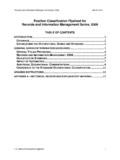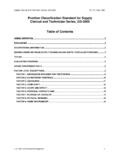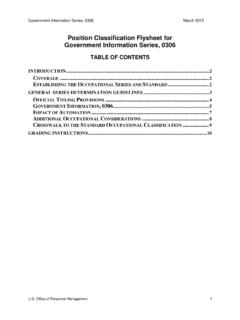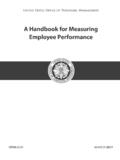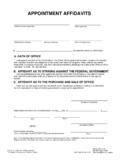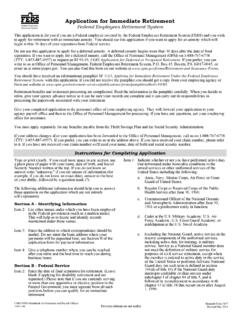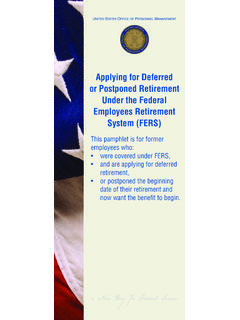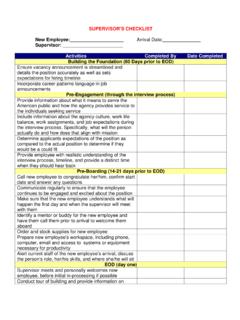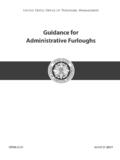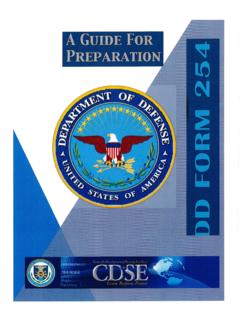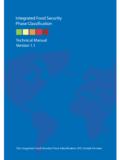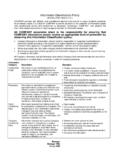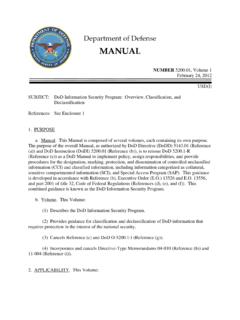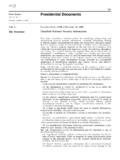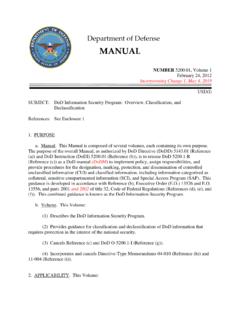Transcription of Position Classification Standards for Security ...
1 Security Administration Series, GS-0080 TS-82 December 1987 Position Classification STANDARD FOR Security ADMINISTRATION SERIES, GS-0080 Table of Contents SERIES OCCUPATIONAL Nature of Security Personnel Physical Information Industrial Specialized Security AUTHORIZED GRADING GRADE CONVERSION FACTOR LEVEL FACTOR 1, KNOWLEDGE REQUIRED BY THE FACTOR 2, SUPERVISORY FACTOR 3, FACTOR 4, FACTOR 5, SCOPE AND FACTOR 6, PERSONAL FACTOR 7, PURPOSE OF FACTOR 8, PHYSICAL FACTOR 9, WORK Office of Personnel Management 1 Security Administration Series, GS-0080 TS-82 December 1987 SERIES DEFINITION This series includes positions the primary duties of which are analytical, planning, advisory, operational, or evaluative work that has as its principal purpose the development and implementation of policies, procedures, Standards , training, and methods for identifying and protecting information, personnel, property, facilities, operations, or material from unauthorized disclosure, misuse, theft.
2 Assault, vandalism, espionage, sabotage, or loss. Duties involve the management, supervision, or performance of work in: (1) developing, evaluating, maintaining, and/or operating systems, policies, devices, procedures, and methods used for safeguarding information, property, personnel, operations, and materials; and/or (2) developing and implementing policies and procedures for analyzing and evaluating the character, background, and history of employees, candidates for employment, and other persons having or proposed to be granted access to classified or other sensitive information, materials, or work sites.
3 This standard supersedes the Position - Classification standard for this series dated June 1962. EXCLUSIONS 1. Positions which are concerned with using, processing, protecting, or otherwise handling national Security information as an incidental function of the principal duties assigned. For example, positions involving the maintenance of files; technical, scientific, or other positions which require working on or with classified information or projects; or other positions the incumbents of which know and apply specific Security protective practices only incidentally to the conduct of their main work are classified in the series appropriate for the principal duties.
4 2. Positions which are principally concerned with directly administering, supervising, or performing (1) work involved in protecting public property, or property in the custody of the Government or (2) law enforcement operations involving the protection of personnel and property, when such duties consist mainly of supervising or performing guard, patrol, or police work, even when such work is primarily concerned with protecting restricted areas, screening access to such areas, and implementing related Security controls. Such positions are classified to the Guard Series, GS-0085, or the Police Series, GS-0083, depending on the nature and scope of specific duties and responsibilities.
5 3. Positions which are primarily concerned with conducting or supervising the conduct of personal background or criminal investigations are classified in the General Investigating Series, GS-1810, or the Criminal Investigating Series, GS-1811. 4. Positions requiring substantive subject-matter knowledge which are concerned with advising Security specialists about or personally classifying information or material into appropriate Security categories (confidential, secret, etc.) or with declassifying such material are classified in the appropriate subject-matter series.
6 Office of Personnel Management 2 Security Administration Series, GS-0080 TS-82 December 1987 5. Positions which require either the performance of work requiring a qualified attorney, or clerical work in support of such legal work, are classified in the appropriate series in the Legal and Kindred Group, GS-0900. 6. Positions which have as their primary concern applying the principles and practices of human resources administration, including resolving questions of suitability for positions based on personal qualifications, are classified in appropriate series in the Job Family Position Classification Standard for Administrative Work in the Human Resources Management Group, GS-0200.
7 7. Positions the primary duties of which require professional or technical knowledge of the electronic or electrical circuitry of Security equipment in order to evaluate, install, maintain, or repair such equipment are classified in the appropriate engineering series or an appropriate technical, repair, or equipment analysis series, such as the Engineering Technician Series, GS-0802. 8. Positions involving responsibility for information technology systems and services used in the automated acquisition, storage, manipulation, management, movement, control, display, switching, interchange, transmission, assurance, or reception of information.
8 Such positions are classified in the Job Family Position Classification Standard for Administrative Work in Information Technology Group, GS-2200. 9. Positions concerned with analysis, evaluation, and production of reports and estimates from raw intelligence information for purposes of informing others about world events and foreign activities, or for counterintelligence analysis, are classified in the Intelligence Series, GS-0132. 10. Full-performance level (nontrainee) positions evaluated below grade GS-9 which require a fundamental understanding of Security information, methods, and procedures, but do not require knowledges characteristic of this series.
9 Such positions are most often performing one-grade interval work in support of Security specialists and are classified in the Security Clerical and Assistance Series, GS-0086. OCCUPATIONAL INFORMATION Security administration in Federal agencies includes a number of functional areas, particularly personnel, physical, information, and industrial Security . (Industrial Security includes aspects of the other Security functions and applies to industrial and academic organizations under contractual agreement to comply with Federal Security requirements.)
10 Security administration involves the safeguarding of information, personnel, property, assets, and/or material from theft, loss, misuse, fraud, disclosure, espionage, or sabotage. It also assures that the employment of personnel in sensitive positions or access by employees and others to secured information, assets, and material is clearly consistent with Position sensitivity and in the national interest (national defense, national Security , or national resource protection). Security specialists Office of Personnel Management 3 Security Administration Series, GS-0080 TS-82 December 1987 develop, evaluate, and implement Security program policy and/or direction.
